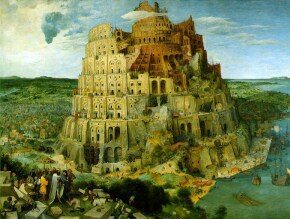|
Originally, 'memory' means as much as devotion: a constant concentrated abiding with something - not just with something that has passed, but in the same way with what is present and with what may come. |
Catholicism/Buddhism:
for example, Thomas Merton, William Johnston and Bede Griffiths. |
People most anointed to
speak for the essential
continuity of the western tradition, for example from Catholic Christianity, have felt
called to
cross-fertilize their path with, for instance, the teachings of Buddhism. The desire to shift
toward novel,
foreign, or iconoclastic teachings - or to reconcile more familiar
faiths to unfamiliar ones - expresses a timely and healthy impulse
to include a wider world in our humanity.
|
|
"Have you no compassion for the past? Do you not see how in its abandonment it depends . . . on the mercy, the spirit, the fairness of each generation? Could not, at any moment, a great monster appear who would force us to deny it completely, who would make our ears deaf to it or even hand us a whip to mistreat it?"
|
Yet
our own tradition may keep
essential elements relevant
to the evolution of experience from which we have been cut
off: Besides the natural tendency to take for granted what
is familiar, exacerbated by meanings exercised too casually or
meanings subjected to cycles of fashion, civilizations demonstrate
common tendencies to crystallize dogmatic institutions around once
living forms of meaning. If we would meet the actual dynamics which
have belonged to the becoming of our own tradition we must get past
 how those dynamics have fossilized,
or turned into
academic 'businesses', or been distorted into forms of power when
they have been brought toward reductive 'bottom lines‡.' how those dynamics have fossilized,
or turned into
academic 'businesses', or been distorted into forms of power when
they have been brought toward reductive 'bottom lines‡.'
Thinking, as it arrives through our history, has suffered every one of the demeanings and distortions enumerated above. In what follows you will find an account of the recent history of thinking, intensively connecting its impulses and explorations, to exhibit and resurrect for the reader a 'genetic' covenant in our own tradition between mind's past and its future. First, that the thinkers of our own recent past were as concerned as we to 'expand their consciousness' and to awaken outside of cultural hypnosis. Second, that the influence which they felt from each other have been links in an 'underground railway' which has borne the possibilities for mind's realization much further than the current high-water mark of the deadening institutionalization of our tradition. Finally, I will sketch some of the crucial contributions of thinking in our time toward transforming Mind's experience - and how these can work together in opening a path for evolving consciousness. |
|
What
the
human spirit is
can be revealed only by the
historical consciousness of
that which the mind has lived
through and brought forth.
|
My hopes are that the weave
of the text can offer
the reader transformative participation in the especially decisive
historical interval which spans the Nineteenth and Twentieth
centuries.
|


which distinction should be rich in...
| Notes:
Introduction |
|
| Martin Heidegger: In What is Called Thinking, page 140. | |
| Friedrich Nietzsche: Quote in Karl Jasper's Nietzsche: An Introduction to the Understanding of his Philosophical Activity, p. 240. | |
| Rudolf Steiner: In The Riddles of Philosophy, page xxii. | |
| bottom lines...: The work of Descartes and Newton - ironically adjunct in each case to their theology - has long fueled reductionism. Marx and Freud, on the other hand, were among those who made incongruously materialistic uses of many of their lofty Nineteenth century influences. | |
| Wilhelm Dilthey: Quoted in Wilhelm Dilthey: The Critique of Historical Reason, by Michael Ermarth, page 319. |
